"1938 in a Seversky fighter: leather flying hats might flatten her hair but lipstick was always a must after a big Bendix Air Race." - Jackie Cochran: An Autobiography.
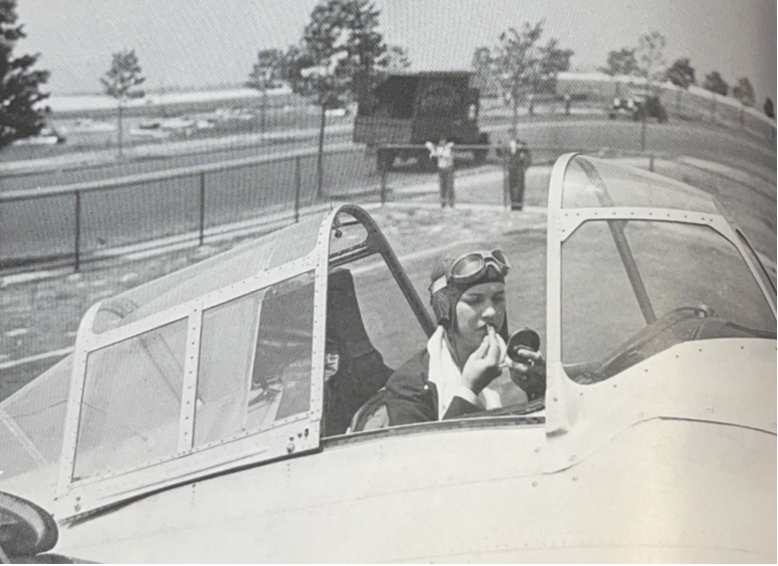
Background Information
"Of the current women flyers, Jacqueline Cochran is the one most often cited as proof women have kept pace with aviation advancements. She began setting speed records in 1936 when she was only 27. During the war she was director of the WASPS (women pilots for the Air Force) and received the Distinguished Service Medal. She didn't quit there. A few months ago she flew a jet faster than the speed of sound-a far cry from the 60 miles an hour at which Alys McKey Bryant piloted her little bamboo-and-muslin flying machine 40 years ago". - Evening Star, Chronicling America: Historic American Newspapers, December 13, 1953.
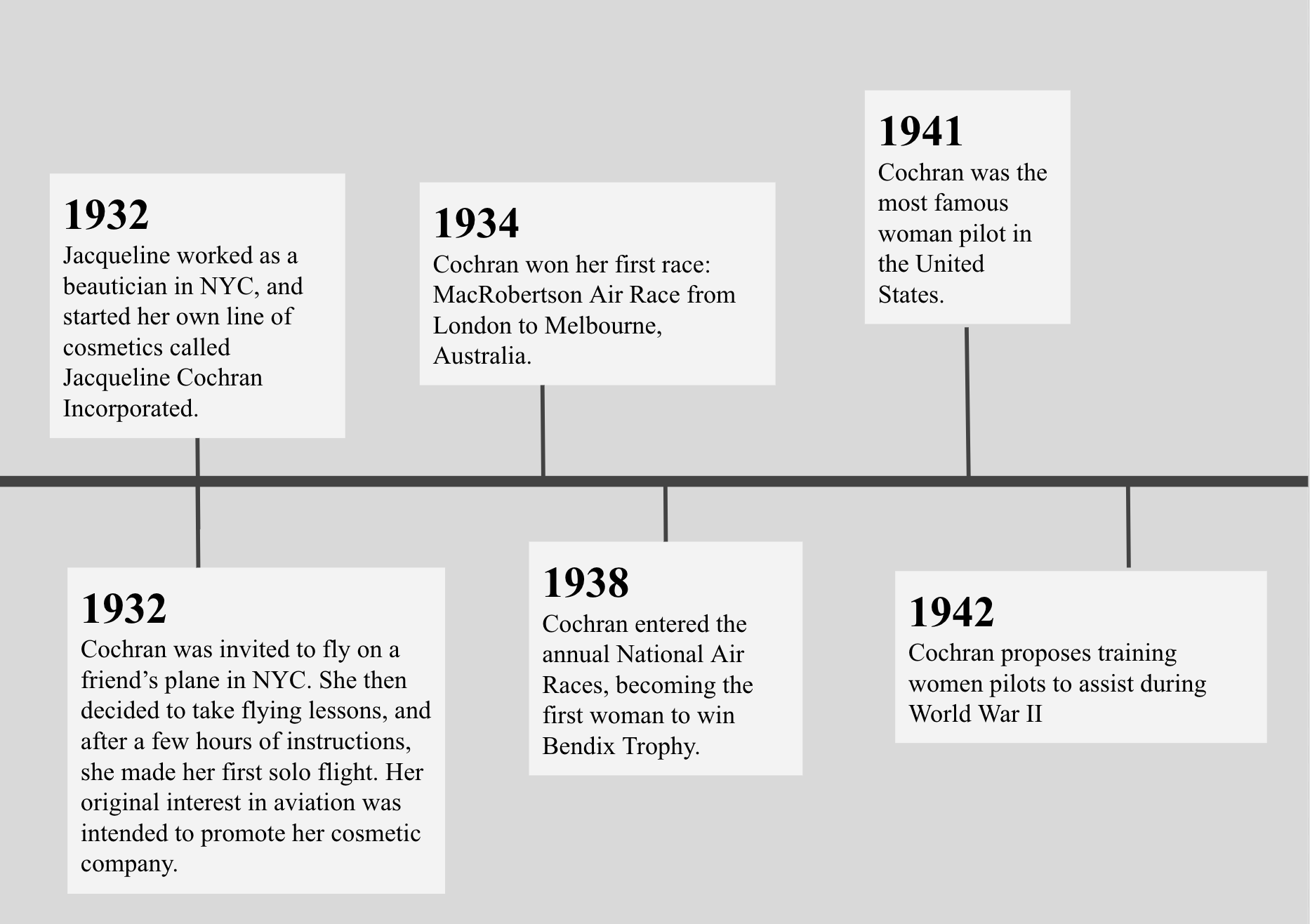
"1938 in a Seversky fighter: leather flying hats might flatten her hair but lipstick was always a must after a big Bendix Air Race." - Jackie Cochran: An Autobiography.

"Flying a pursuit plane designed by Major Alexander P. de Seversky." - Jackie Cochran: An Autobiography.
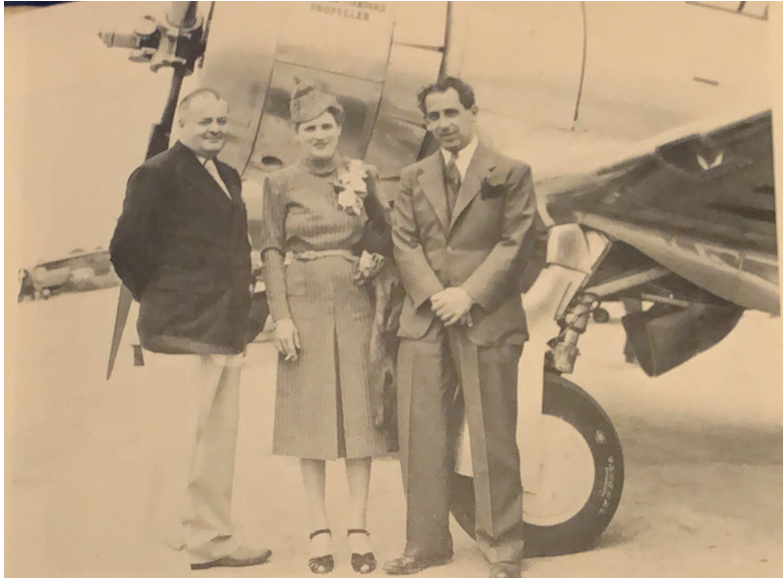
"Jackie captured the #1 spot in the 1938 Bendix Air Race and got a handshake from Vincent Bendiix himself." - Jackie Cochran: An Autobiography.
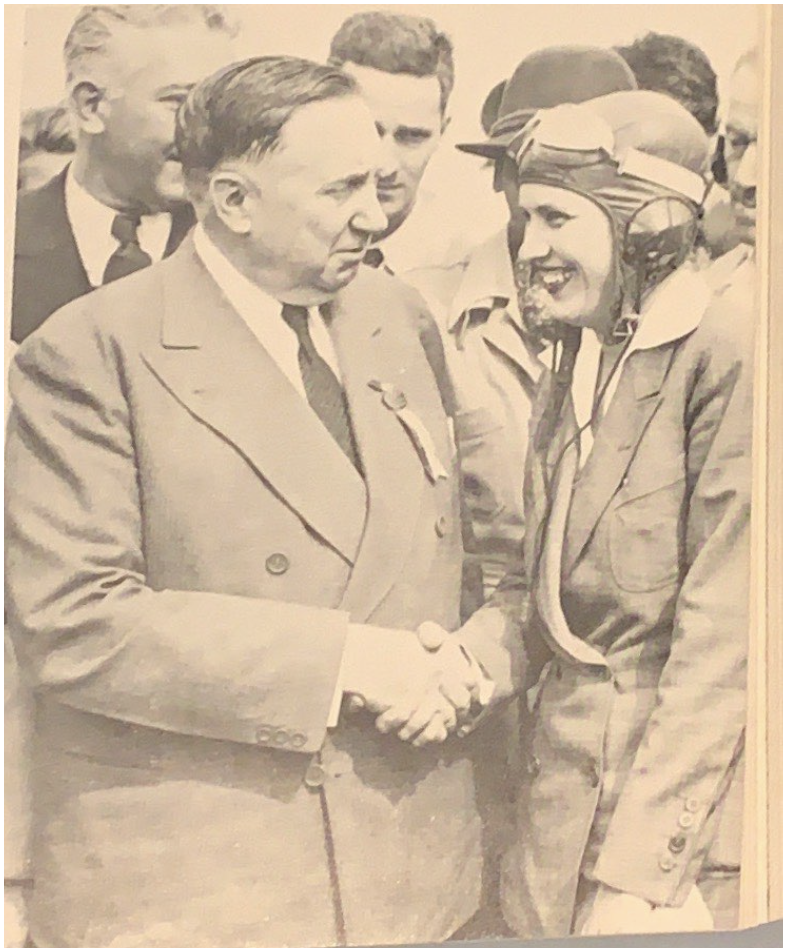
"Hugging a propeller that had forced her further and faster." - Jackie Cochran: An Autobiography.

The Long Term Fight of Women Aviators
The fight for women pilots to be integrated into the military has been long term. There has been a history of controversy surrounding women aviators in the military. World War II was not the first time that women aviators wanted to serve their country. During World War I, two women, Katherine Stinson and Ruth Law, who were both experienced pilots, were denied places in the military.
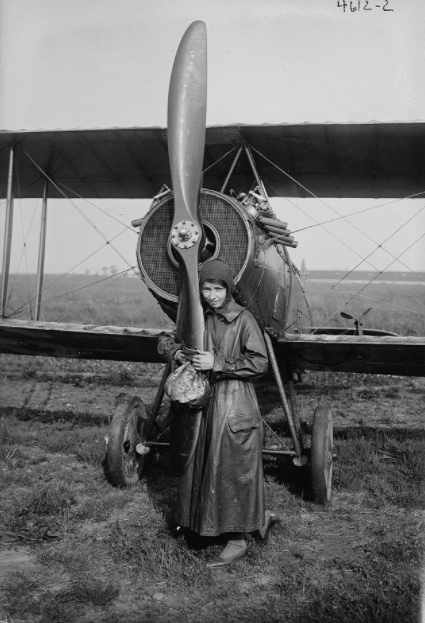
Katherine Stinson. Courtesy of This Day In Aviation.

Ruth Law. Courtesy of Smithsonian Studies in Air and Space.
"There is the world-old controversy that crops up again whenever women attempt to enter a new field. Is woman fitted for this or that work? It would seem that a woman's success in any particular line would prove her fitness for that work, without regard to theories to the contrary" - Ruth Law, Let Women Fly, Air Travel Magazine, February 1918